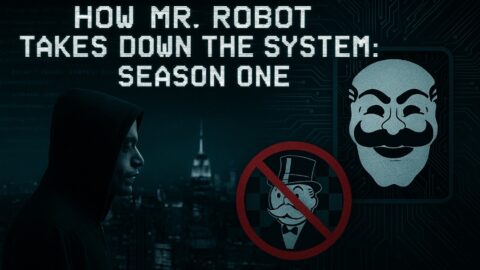“Idiot Compassion” vs. Wise Counsel: Why Friends and Family Often Make Divorce Worse
Introduction
In the age of emotional validation, we’ve confused support with enabling, empathy with bias, and love with loyalty to distorted narratives. Nowhere is this more evident than in the modern handling of divorce and relationship conflicts.
We turn to friends and family expecting comfort, but what we often receive is “idiot compassion.” This phrase, coined in therapeutic circles, describes the reflex to side with someone’s perspective without question — out of love, yes, but ultimately to their detriment.
If you’re asking, “Why do these things keep happening to me?” and every voice around you says, “Because you’re the victim — they were wrong, you’re right”, you’re not being helped. You’re being coddled — and likely misled.
What Is “Idiot Compassion”?
“Idiot compassion” is when someone, in an attempt to show care, avoids truth in favor of emotional safety.
Let’s break it down:
- A friend says: “You did nothing wrong. They’re the problem.”
- A family member says: “You deserve better, don’t let anyone treat you that way.”
- Everyone tells you what you want to hear — not what you need to hear.
And here’s the thing: it feels great in the moment. It validates your pain. It stokes your ego. It reinforces your existing narrative. But it halts your growth.
It’s like a doctor ignoring a festering wound because the patient doesn’t want to hear they’re making it worse by picking at it. Comfort over cure.
Why Friends and Family Can’t Be Neutral
In emotionally charged situations like divorce, friends and family rarely provide objective advice — not because they’re malicious, but because they’re invested in you, not the truth.
Here’s what often happens:
- They side with you because they love you.
- They take your version of the story as truth.
- They demonize the other person.
- They mirror your emotions to make you feel seen — not challenged.
And while that can feel supportive, it cements distorted perspectives, encourages victimhood, and can even fuel bitterness and prolong healing.
In reality, most relationship breakdowns are not one-sided. But it takes a mature, wise, and neutral presence to point out your own role in the conflict — to say, “Maybe it’s not just them.”
That’s not something most friends or family are equipped — or willing — to do.
The Role of the Wise Person
Enter: wise compassion.
The wise person is like a good therapist or mentor — not emotionally entangled, not biased by loyalty. They have the courage and clarity to say:
- “What’s your role in this?”
- “What patterns do you keep repeating?”
- “What might they be feeling?”
- “Where were you blind or selfish or reactive?”
Wise compassion isn’t cold or cruel. It’s loving, but it doesn’t flinch from the truth. It seeks growth, not just comfort. And unlike idiot compassion, it helps you become a better human.
A wise person operates with:
- Emotional neutrality
- Spiritual maturity
- Long-term perspective
- Courage to confront and clarify
They aren’t looking to choose sides — they’re looking to see the whole picture.
The Bigger Problem: The Culture of Emotionalism
This all stems from a cultural shift: we’ve elevated feelings over facts, emotional safety over emotional maturity, and validation over accountability.
When that becomes our baseline for advice — especially in crisis — we lose all anchors to reality. And as Ricky Gervais so bluntly put it:
“The world began to crumble when feelings started overruling facts.”
In this emotional chaos, truth-tellers are seen as enemies — because they threaten comfort. This is why, as Orwell noted:
“The further a society drifts from truth, the more it will hate those who speak it.”
What to Do Instead
If you’re facing something like a divorce, a breakup, or a deep personal conflict, don’t run to the echo chamber.
Instead:
- Seek someone who is wise, grounded, and spiritually mature.
- Look for truth, not just relief.
- Invite correction, not just comfort.
- Be willing to see yourself in the mirror — even if it hurts.
Because real healing and real growth only begin when the ego ends and truth is allowed in.
Conclusion: Choose Growth Over Validation
Idiot compassion might feel good, but it keeps you stuck. Wise counsel might sting, but it sets you free.
Whether you’re navigating a divorce, a crisis, or a hard decision — your progress depends on the voices you allow in your life. Not everyone who comforts you cares about your soul. And not everyone who challenges you is your enemy.
So choose your circle carefully. Choose growth over validation. And most importantly, choose truth — even when it’s uncomfortable.
Because only truth will lead you out of the pain and into purpose.






